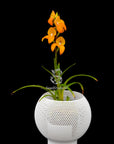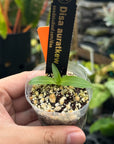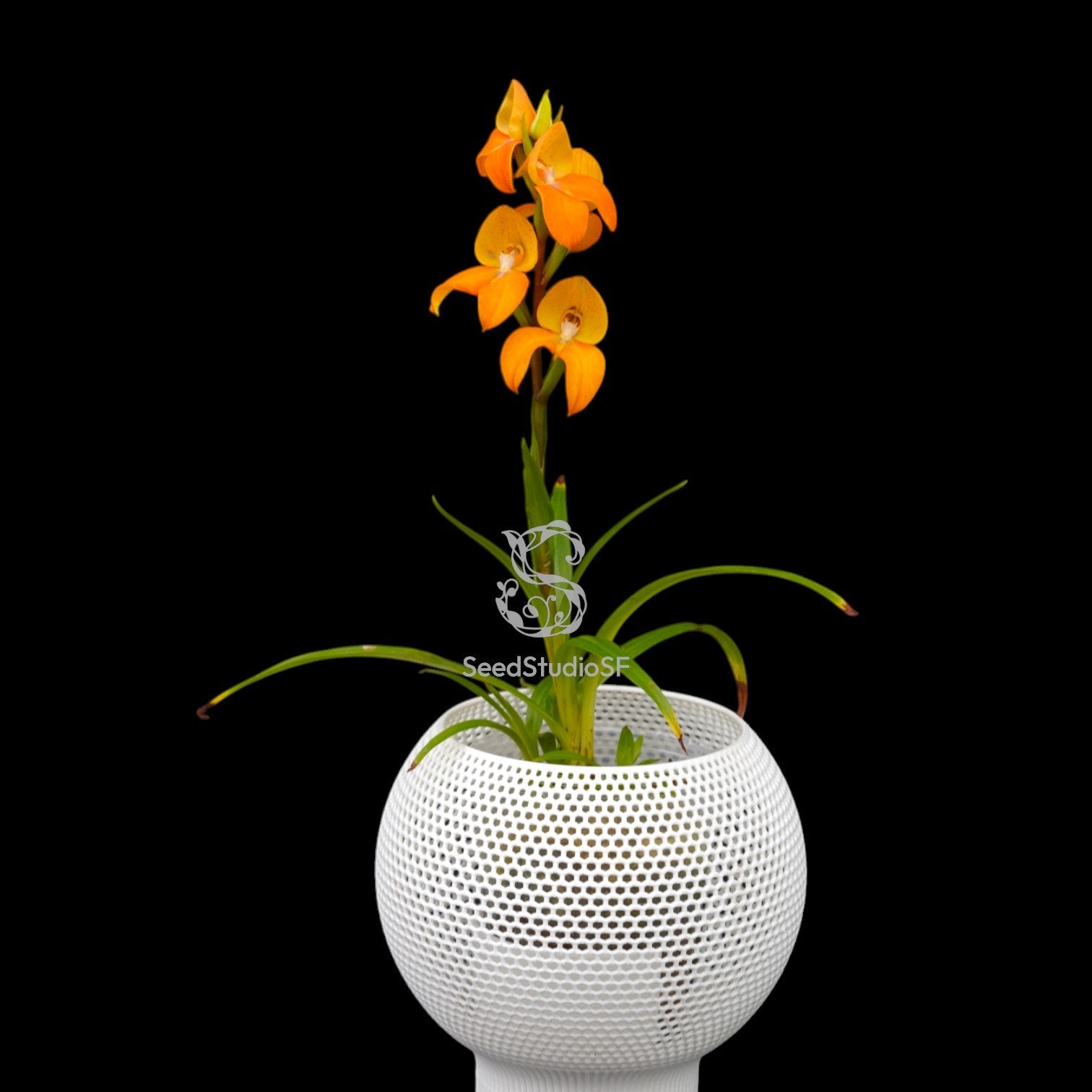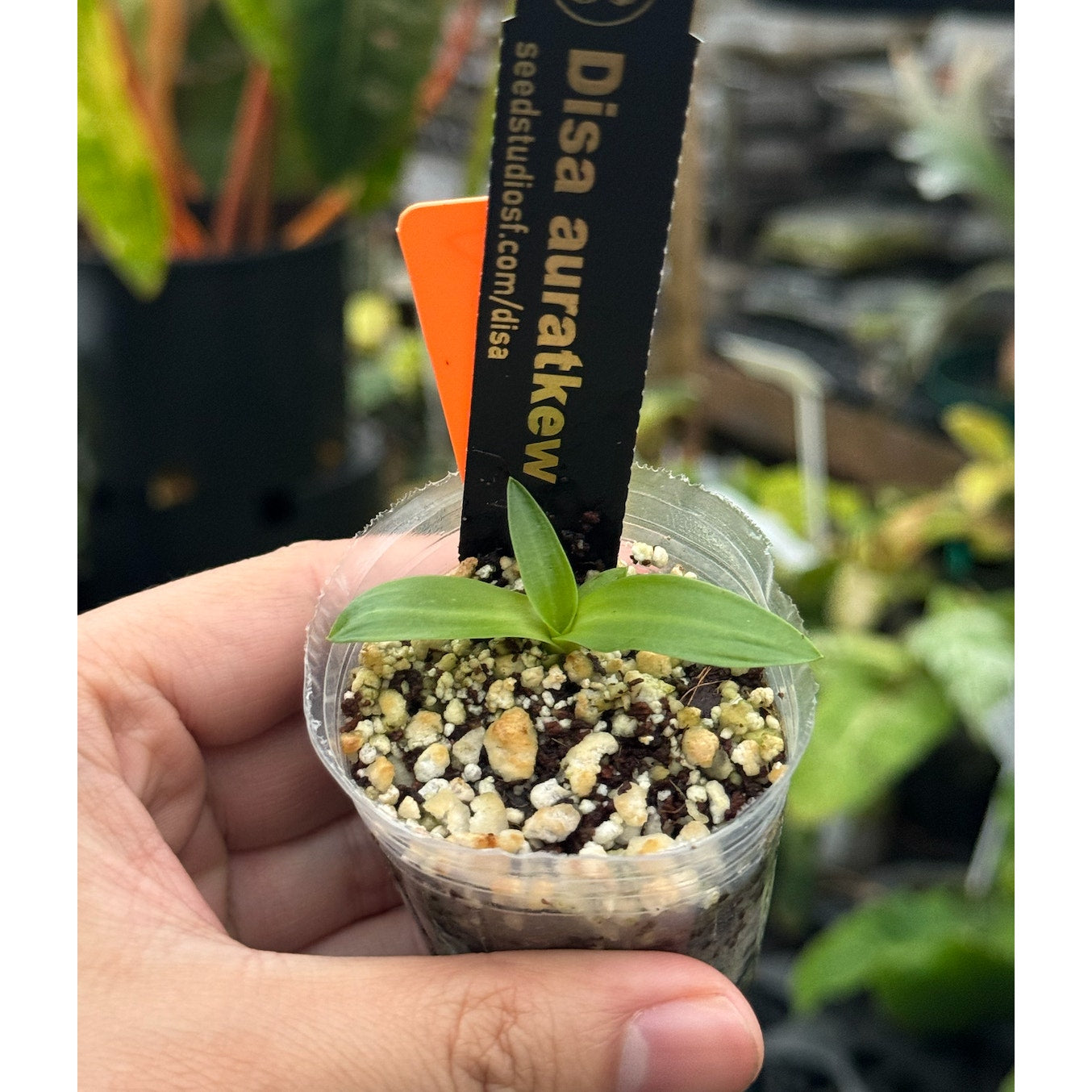

Disa Auratkew RARE Collector Orchid
$45.00
Disa Auratkew, hybrid between Disa aurata × Disa Kewensis. Flowers typically show bright yellow to orange tones overlaid with red or pink, often producing striking bicolor effects. Inflorescences are upright, carrying multiple medium to large blooms. Good substance, with flowers lasting 6–8 weeks under suitable conditions.
Quantities are very limited—expected to bloom within 1–2 years. (this is from seed, the color may vary from orange to light pink)
Light
Bright, indirect light. Disa species thrive in conditions similar to Cymbidiums or Streptocarpus—filtered sun.
Temperature
Day: 40–85°F
Avoid hot, stagnant conditions
Water & Humidity
Keep roots constantly moist. Use low-mineral water (rainwater, RO, or distilled).
Humidity: 50–80% is ideal.
Media & Potting
Use an open, fast-draining mix such as:
50% perlite or lava rock
25% sphagnum
25% bark or fine gravel
Repot every 1–2 years, especially after blooming when new tubers are forming.
Feeding:
Disas are sensitive to fertilizer salts. Use 1/4-strength orchid fertilizer bi-weekly during active growth (spring–early fall). Flush with clean water monthly to prevent salt buildup.
More details about caring tips are available:
seedstudiosf.com/disa
Quantities are very limited—expected to bloom within 1–2 years. (this is from seed, the color may vary from orange to light pink)
Light
Bright, indirect light. Disa species thrive in conditions similar to Cymbidiums or Streptocarpus—filtered sun.
Temperature
Day: 40–85°F
Avoid hot, stagnant conditions
Water & Humidity
Keep roots constantly moist. Use low-mineral water (rainwater, RO, or distilled).
Humidity: 50–80% is ideal.
Media & Potting
Use an open, fast-draining mix such as:
50% perlite or lava rock
25% sphagnum
25% bark or fine gravel
Repot every 1–2 years, especially after blooming when new tubers are forming.
Feeding:
Disas are sensitive to fertilizer salts. Use 1/4-strength orchid fertilizer bi-weekly during active growth (spring–early fall). Flush with clean water monthly to prevent salt buildup.
More details about caring tips are available:
seedstudiosf.com/disa


